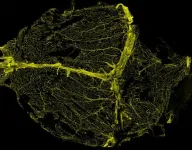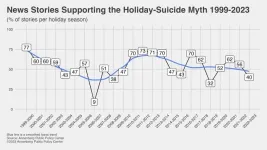(Press-News.org) Ketamine – an anesthetic also known for its illicit use as a recreational drug – has undergone a thorough reputational rehabilitation in recent years as the medical establishment has begun to recognize its wide-ranging therapeutic effects. The drug is increasingly used for a range of medical purposes, including as a painkiller alternative to opioids, and as a therapy for treatment-resistant depression.
In a new study published in the journal Cell Reports, Columbia biologists and biomedical engineers mapped ketamine’s effects on the brains of mice, and found that repeated use over extended periods of time leads to widespread structural changes in the brain’s dopamine system. The findings bolster the case for developing ketamine therapies that target specific areas of the brain, rather than administering doses that wash the entire brain in ketamine.
“Instead of bathing the entire brain in ketamine, as most therapies now do, our whole-brain mapping data indicates that a safer approach would be to target specific parts of the brain with it, so as to minimize unintended effects on other dopamine regions of the brain,” Raju Tomer, the senior author of the paper said.
The study found that repeated ketamine exposure leads to a decrease in dopamine neurons in regions of the midbrain that are linked to regulating mood, as well as an increase in dopamine neurons in the hypothalamus, which regulates the body’s basic functions like metabolism and homeostasis. The former finding, that ketamine decreases dopamine in the midbrain, may indicate why long-term abuse of ketamine could cause users to exhibit similar symptoms to people with schizophrenia, a mood disorder. The latter finding, that ketamine increases dopamine in the parts of the brain that regulate metabolism, on the other hand, may help explain why it shows promise in treating eating disorders.
The researchers’ highly-detailed data also enabled them to track how ketamine affects dopamine networks across the brain. They found that ketamine reduced the density of dopamine axons, or nerve fibers, in the areas of the brain responsible for our hearing and vision, while increasing dopamine axons in the brain's cognitive centers. These intriguing findings may help explain the dissociative behavioral effects observed in individuals exposed to ketamine.
“The restructuring of the brain’s dopamine system that we see after repeated ketamine use may be linked to cognitive behavioral changes over time,” Malika Datta, a co-author of the paper said.
Most studies of ketamine’s effects on the brain to-date have looked at the effects of acute exposure – how one dose affects the brain in the immediate term. For this study, researchers examined repeated daily exposure over the course of up to ten days. Statistically significant alterations to the brain’s dopamine makeup were only measurably detectable after ten days of daily ketamine use. The researchers assessed the effects of repeated exposure to the drug at two doses, one dose analogous to the dose used to model depression treatment in mice, and another closer to the dose that induces anesthesia. The drug’s effects on dopamine system were visible at both doses.
“The study is charting a new technological frontier in how to conduct high-resolution studies of the entire brain,” said Yannan Chen, a co-author of the paper. It is the first successful attempt to map changes induced by chronic ketamine exposure at what is known as “sub-cellular resolution,” in other words, down to the level of seeing ketamine’s effects on parts of individual cells.
Most sub-cellular studies of ketamine's effects conducted to-date have been hypothesis-driven investigations of one area of the brain that researchers have targeted because they believed that it might play an important role in how the brain metabolizes the drug. This study is the first sub-cellular study to examine the entire brain without first forming such a hypothesis.
Bradley Miller, a Columbia psychiatrist and neuroscientist who focuses on depression, said: "Ketamine rapidly resolves depression in many patients with treatment resistant depression, and it is being investigated for longer term use to prevent the relapse of depression. This study reveals how ketamine rewires the brain with repeated use. This is an essential step for developing targeted treatments that effectively treat depression without some of the unwanted side effects of ketamine.”
The research was supported by the National Institutes of Health (NIH) and the National Institute of Mental Health (NIMH). The paper’s lead authors are Malika Datta and Yannan Chen, who completed their research in Raju Tomer’s lab at Columbia. Datta is now a postdoctoral fellow at Yale.
“This study gives us a deeper brain-wide perspective of how ketamine functions that we hope will contribute to improved uses of this highly promising drug in various clinical settings as well as help minimize its recreational abuse. More broadly, the study demonstrates that the same type of neurons located in different brain regions can be affected differently by the same drug,” said Tomer.
END
New study maps ketamine's effects on brain
2023-12-04
ELSE PRESS RELEASES FROM THIS DATE:
Studies help explain why some prostate cancers become resistant to hormone therapy
2023-12-04
Two new studies led by researchers from the UCLA Jonsson Comprehensive Cancer Center give insight into how cells use energy to influence the way prostate tumors survive and grow — advancements that can help explain why some prostate cancers become resistant to hormone therapy, the most commonly used treatment for men with advanced stages of the disease.
Hormone therapy, also known as antiandrogen therapy, plays a crucial role in temporarily halting the growth of prostate cancer cells. Over time, however, the majority of patients eventually see their cancer return and progress, underscoring the pressing need for continued advancements to enhance clinical ...
Hard to drug: Protein droplets reveal new ways to inhibit transcription factors in an aggressive form of prostate cancer
2023-12-04
Many of the most potent human oncoproteins belong to a class of proteins called transcription factors, but designing small molecule drugs that target transcription factors is a major challenge.
An international team of researchers from the Institute for Research in Biomedicine (IRB Barcelona), the Max Planck Institute for Molecular Genetics (MPIMG), BC Cancer (University of British Columbia) and other institutions has discovered a potential way to target the androgen receptor, the most prominent oncogenic transcription factor in prostate cancer, based on its propensity to form droplets also known as condensates.
The results described ...
MD Anderson’s Katy Rezvani, M.D., receives 2023 Honorific Award from the American Society of Hematology
2023-12-04
Katy Rezvani, M.D., Ph.D., professor of Stem Cell Transplantation & Cellular Therapy at The University of Texas MD Anderson Cancer Center, has been honored with the E. Donnall Thomas Lecture and Prize from the American Society of Hematology (ASH) for her groundbreaking research to develop and advance innovative cell therapies for cancer using natural killer (NK) cells.
“I am fortunate to be able to engage in research that I am passionate about, to mentor incredible young scientists, and to collaborate with a remarkable team of researchers and clinicians. But most importantly, I am blessed to have the opportunity to undertake research that has the potential to ...
Salty immune cells surrounding the brain linked to hypertension-induced dementia
2023-12-04
A study supported by the National Institutes of Health suggests that the response of immune system cells inside the protective covering surrounding the brain may contribute to the cognitive decline that can occur in a person with chronic high blood pressure. This finding, published in Nature Neuroscience, may shed light on new ways to counteract the effects of high blood pressure on cognition. The study was funded by the National Institute of Neurological Disorders and Stroke (NINDS), a part of NIH.
“The role of immune signaling in cognitive decline is critically important to understand,” said Roderick Corriveau, Ph.D., program director, NINDS. “These findings offer insight ...
Dark galactic region nicknamed "The Brick" explained with Webb telescope findings
2023-12-04
In a recent study led by University of Florida astronomer Adam Ginsburg, groundbreaking findings shed light on a mysterious dark region at the center of the Milky Way. The turbulent gas cloud, playfully nicknamed “The Brick” due to its opacity, has sparked lively debates within the scientific community for years.
To decipher its secrets, Ginsburg and his research team, including UF graduate students Desmond Jeff, Savannah Gramze, and Alyssa Bulatek, turned to the James Webb Space Telescope (JWST). The implications of their observations, published in ...
Awareness, accessibility, and affordability are crucial for the early detection of thalassemia
2023-12-04
- Interviewing Dr. Androulla Eleftheriou, Executive Director at TIF, and Dr. Zhiyu Peng, Deputy GM at BGI Genomics, Head of the World Hemoglobinopathy Foundation
Thalassemia, a hereditary hemoglobinopathy, occurs in 4.4 out of every 10,000 live births and is prevalent in Mediterranean coastal areas, Africa, the Middle East, Southeast Asia, and southern China.
Screening and antenatal diagnosis reduced the frequency of β-thalassemia in many Mediterranean countries. Focusing on other regions with high thalassemia prevalence, BGI Genomics has launched the Global 2023 State of Thalassemia Awareness Report, covering 1,847 ...
Complications from flu largely preventable with annual flu vaccine
2023-12-04
ARLINGTON, Va., BETHESDA, Md., CHICAGO and DALLAS, Dec. 4, 2023 — During National Influenza Vaccination Week (December 4-8, 2023), leading public health organizations are encouraging everyone to get a flu shot if they have not already done so. The flu is more than an inconvenience: it can lead to hospitalization, worsening of chronic medical conditions or even death. An annual flu vaccine is the best way to help prevent complications from the flu. [1]
The American Heart Association®, the American Lung Association,® the American ...
Soil drought weakens forest microclimatic cooling
2023-12-04
Scientists from Stockholm University have investigated the mechanisms that create cool microclimates beneath forest canopies during warm and dry summer days. The study reveals how canopy shading and water evaporation together create cooler forest microclimates compared to temperatures outside forests. The article is published in Agricultural and Forest Meteorology.
”The findings are alarming in the context of climate change as more frequent and more severe droughts may threaten the cooling functions of forests,” says Caroline Greiser, researcher at the Physical Geography Department, Stockholm ...
Study shows advanced footwear technology positively impacts elite sprint performances
2023-12-04
A scientific study published in PeerJ Life & Environment sheds light on the potential game-changing impact of advanced footwear technology (AFT) on elite sprint performances in track and field. The research, titled "The Potential Impact of Advanced Footwear Technology on the Recent Evolution of Elite Sprint Performances," reveals the significant strides made in sprint performance and suggests that AFT has played a pivotal role in these improvements.
Elite track ...
What's behind the holiday-suicide myth
2023-12-04
PHILADELPHIA – For more than two decades, the Annenberg Public Policy Center has tracked the ways in which news organizations erroneously link the year-end holiday season with suicide, perpetuating the false holiday-suicide myth. But as years of national data show, the winter holiday months usually have low average daily suicide rates, with December the lowest of all.
In our new media analysis, we find that of the newspaper stories during the 2022-23 holiday season that explicitly connected the holidays with suicide, 60% correctly debunked the myth while 40% incorrectly supported it.
But it’s not just the media that ...





